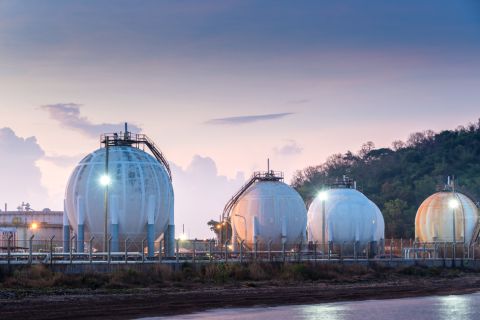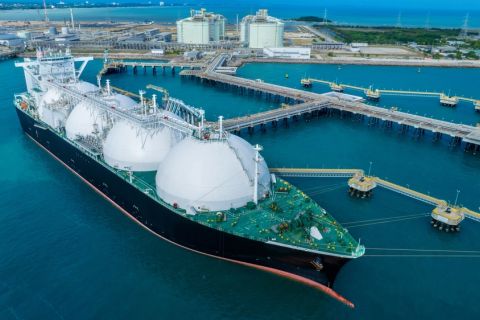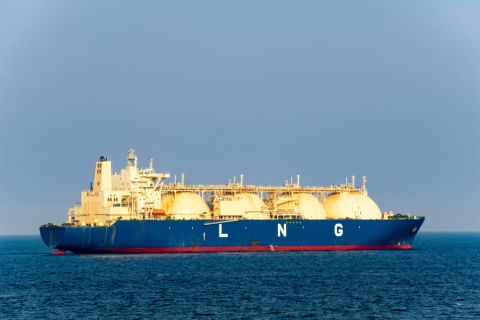The use of LNG imports for power generation in the Philippines next year should not be a disincentive for investors in renewables, the country's energy chief said on Oct. 23.
The Southeast Asian country, which relies mostly on oil and coal imports for its energy needs, expects the transition to low-carbon fuels to gain momentum after its Department of Justice recently declared that renewables investments are exempt from the country's 40% limit on foreign ownership in the energy sector among others.
Energy Secretary Raphael Lotilla said in an interview with Reuters that there is increasing interest in renewables now that key hurdle has been cleared, with several foreign investors with stakes in local projects looking at increasing their holdings.
At least three LNG import terminals are expected to begin commercial operations in 2023, but Lotilla said the Philippines will not be overly dependent on one or two energy resources.
"The entry of imported natural gas should not be seen as pulling the rug from under renewable energy," he said, adding that LNG would be an essential back-up fuel to support a growing economy.
The government, which is targeting annual economic growth of 6.5% to 8% between 2023 and 2028, has stopped accepting new proposals for coal-based power projects to support investment in renewables and natural gas.
It aims to increase the share of renewable energy sources such as solar, wind and tidal in the energy mix to 35% by 2030 and to 50% by 2040, up from a little more than 20% last year.
Lotilla also expressed support for nuclear power, though he said the plan requires legislation on the legal and regulatory framework.
"We won't ban any particular technologies. We need to diversify our energy resources," he said. "There is room for more sources of energy."
Recommended Reading
White House Open to Ending LNG Export Pause in Push for Ukraine Aid, Sources Say
2024-04-02 - Reversing the pause could be tolerable to the White House in order to advance Ukraine aid, in part because the pause has no bearing on near-term LNG exports, the White House sources said.
US Expected to Supply 30% of LNG Demand by 2030
2024-02-23 - Shell expects the U.S. to meet around 30% of total global LNG demand by 2030, although reliance on four key basins could create midstream constraints, the energy giant revealed in its “Shell LNG Outlook 2024.”
CERAWeek: JERA CEO Touts Importance of US LNG Supply
2024-03-22 - JERA Co. Global CEO Yukio Kani said during CERAWeek by S&P Global that it was important to have a portfolio of diversified LNG supply sources, especially from the U.S.
Silver Linings in Biden’s LNG Policy
2024-03-12 - In the near term, the pause on new non-FTA approvals could lift some pressure of an already strained supply chain, lower both equipment and labor expenses and ease some cost inflation.
Dispatch from the LNG Front: Development Not ‘Paused’ so much as Slowed
2024-04-04 - Analysts: Low prices may stall upcoming gas gathering projects that are needed for an expected boom.




